PM: Trinis must claim their Africanness
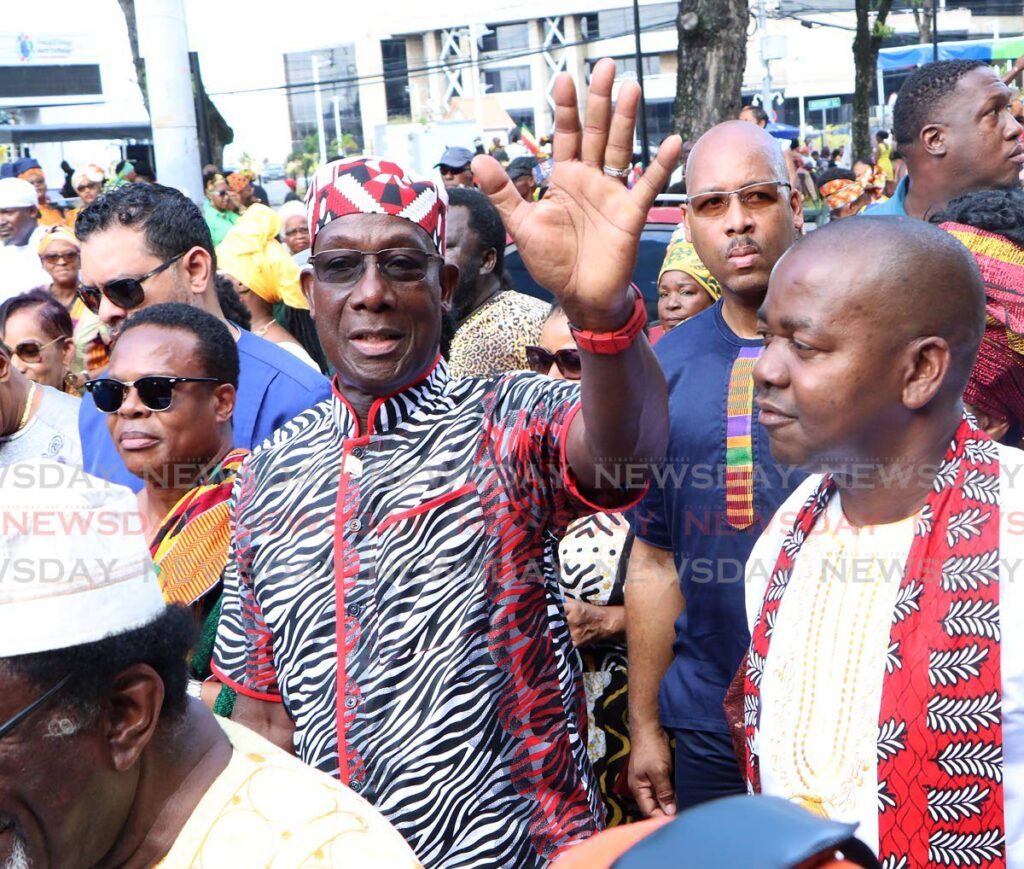
The Prime Minister hopes that more youth will join future African Emancipation Day celebrations and also revealed that Caricom leaders intended to speak “very forcefully” with one voice at the upcoming Commonwealth Heads of Government meeting to be held from October 21-26 at Apia, Samoa, particularly on the issue of reparations.
Dr Rowley addressed a growing crowd who gathered at Brian Lara Promenade, obliquely opposite the Treasury Building, Port of Spain, eager to begin the Kambule street procession on August 1.
Rowley and several of his Cabinet members, along with chair of the Emancipation Support Committee (ESC) TT Zakiya Uzoma-Wadada, the ESCTT’s spiritual leader Equino Moyo, its director of regional and Pan-African affairs Khafra Kambon and the University of the West Indies’ vice chancellor Sir Hilary Beckles were among the invited guests.
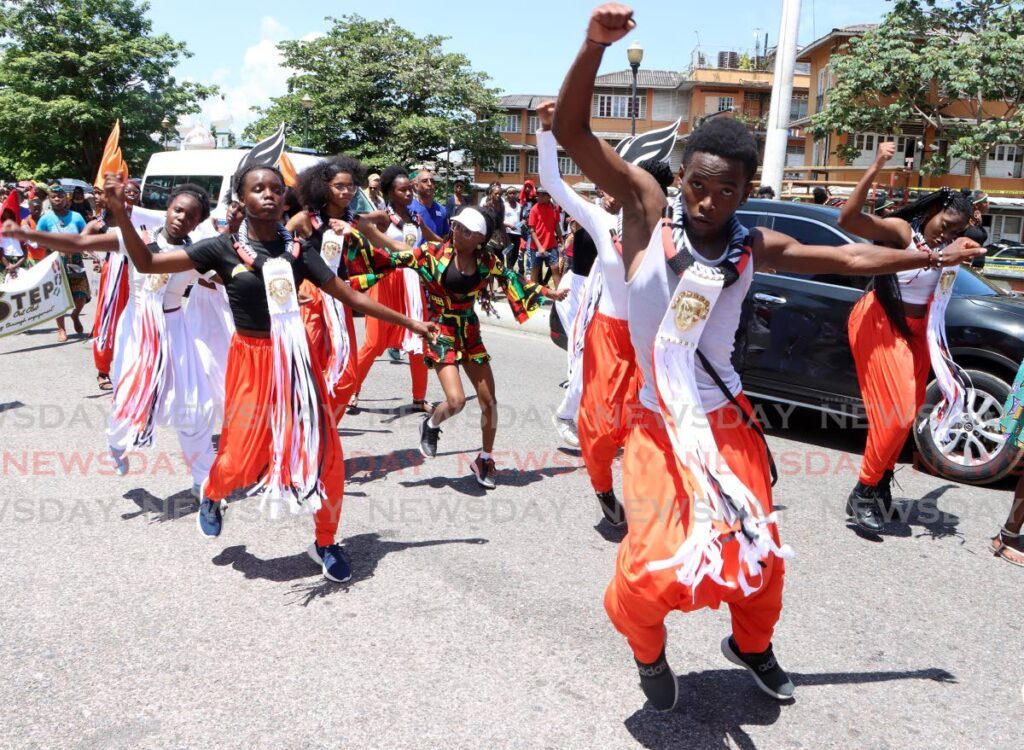
Having recently returned from the 47th regular meeting of the Conference of Heads of Government of the Caribbean Community (Caricom) in St George’s, Grenada, Rowley told those gathered, “In a few months, the Caribbean leaders will meet the rest of the commonwealth leaders in Samoa. It is a very interesting time because Sir Hilary Beckles has been leading the intellectual arguments (on reparations).
“The Caricom has a body of people – many of them intellectuals of one kind or another, leaders of one kind or another – demanding more loudly and persistently at this time that, as Martin Luther (King Jr ) said, ‘The arc of freedom bends towards justice.’
“We here gathered are on that arc. We genuinely believe that it will bend to a point and a day when justice would be recognised by all and handed to those who deserve it.
“The Caribbean leaders took a decision this week to very forcefully speak to the Commonwealth as one voice and there is one particular country with a new king and Labour Government, with an outstanding mandate and we look forward to the reaction in October,” he said.
He opened his address by saying some words mattered more than others and one of those was "respect."
People who advanced their interests and agenda had very little respect for the descendants of the enslaved, he said.
Rowley said respect was still required as it was not offered easily or gratuitously.
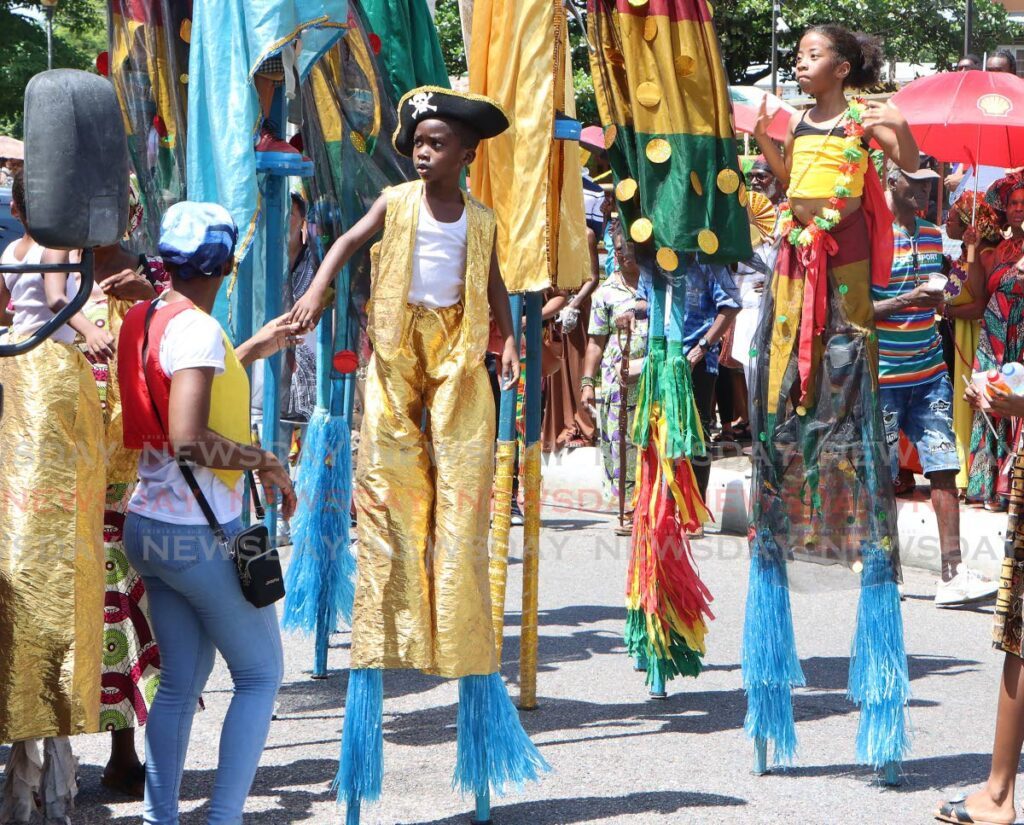
“The African people of TT need to focus on the word 'respect,' starting with respecting those of our ancestors who were there when the hardships were meted out, those who were there when the categorisation was laid out and those who were there who survived so that we could be the progeny of their strength and resilience.”
He said out of that respect would come the desire to be the best that they could be, against advice that they were worth nothing or limited in what they could achieve or less than anticipated.
“If we, deliberately, through our education and our acceptance of our location in the world, the world’s economy, the world’s politics, the world’s geography – if we accept that and accept our place, we will resist and we will grow.”
Rowley called on Trinidadians to be proud of their ancestry and not to be afraid to claim their Africanness, especially in today’s world, where Africa was rising and rising to meet TT and the region.
He said freedom and respect were things the descendants of the enslaved would have to continue to demand.
Until respect for the region’s people was acknowledged by those who hold authority, African people will be continued to be viewed as second and third class and would have to continue the fight for freedom and respect, Rowley said.
He said the region's leaders were not afraid of that fight, just as their ancestors were not afraid to resist.
In the 21st century the region’s people must continue the conversation and the demand, Rowley said.
“We will come out on the street and hopefully next year we will have more of our young people with us because without them the fight would not be as effective as it should be.
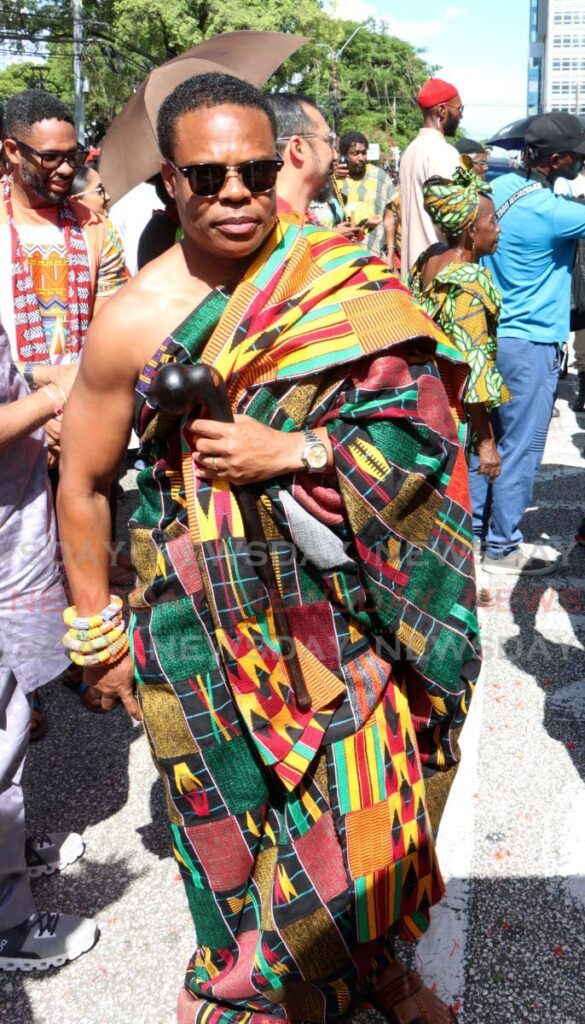
“A lot of our young people are totally unaware of our circumstance and our history. It needs to be taught, it needs to be spoken about, it needs to be lived and re-lived.”
However, when questioned about this during the Kambule, Wadada said many of the event’s cultural performers were young people and this would eventually lead to a young spectatorship.
Similarly, Kambon said there was a good turnout of young people.
He added, however, there was a challenge in the 21st century to get young people tuned into things outside of entertainment.
“Books and so on have become passé to all the screens and devices and so on. That is something we are going to have to think deeply about to be able to keep young people engaged.
“I know Sister Zakiya (Wadada) is passionate about that,” he said.
Mitchell: Mecca of Emancipation celebrations
Many of Rowley’s Cabinet members also attended the celebrations, including Minister of Tourism, Culture and the Arts Randall Mitchell. Minister of Education Dr Nyan Gadsby-Dolly, Communications Minister Symon de Nobriga, Minister of National Security Fitzgerald Hinds and Minister of Youth Development and National Service Foster Cummings among others.
Mitchell said he hoped TT became the mecca for such celebrations, globally.
“TT stands proud, as we heard already, as the first country to honour our African ancestors and their descendants by commemorating African Emancipation with the declaration of August 1 as African Emancipation Day.”
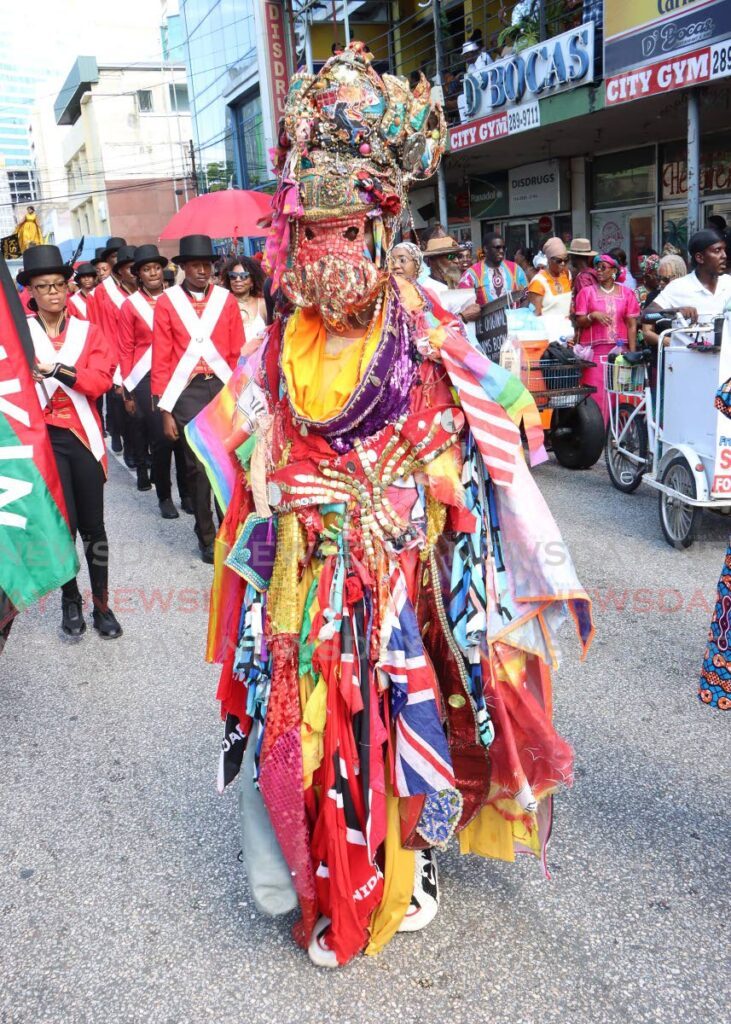
He said the day also paid tribute to the unrelenting spirit of Trinidadians and contemplated TT’s continuing journey toward justice, equality and dignity.
“African Emancipation Day must be recognised as a cornerstone of our national identity. The legacy of our African ancestors is evident in every facet of our society.
“Of particular importance to us, is the African influence on our arts and culture such as our Carnival arts, calypso, soca and the national musical instrument of TT, the pan, which have all become synonyms with our cultural identity.”
He added that the ministry remained committed to preservation and investment in the cultural development of all of TT’s art forms.
The ministry continued to support the Pan African Festival, ensuring TT’s African heritage and traditions are preserved, celebrated and passed on to future generations.
He commended the committee for co-ordinating another successful year of the festival.
Mitchell said it was the first time TT was celebrating the renamed African Emancipation Day and the celebrations were exciting as usual.
He said TT was the first to declare the Emancipation Day, now African Emancipation Day, and so the country is considered the mecca of such celebrations.
“We have a story to tell within our own African heritage and we want to identify ourselves as the birthplace of that recognition of African Emancipation in all of the Commonwealth and all of the world, all of the former British colonies where the atrocities of slavery occurred,” he said to Newsday during the street procession.

Comments
"PM: Trinis must claim their Africanness"